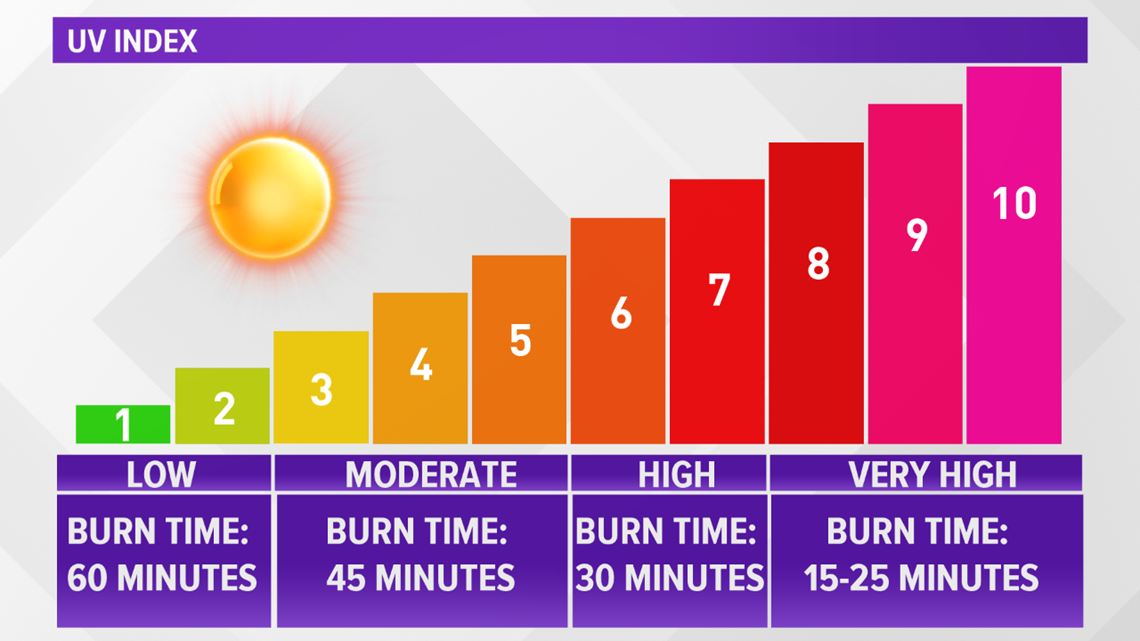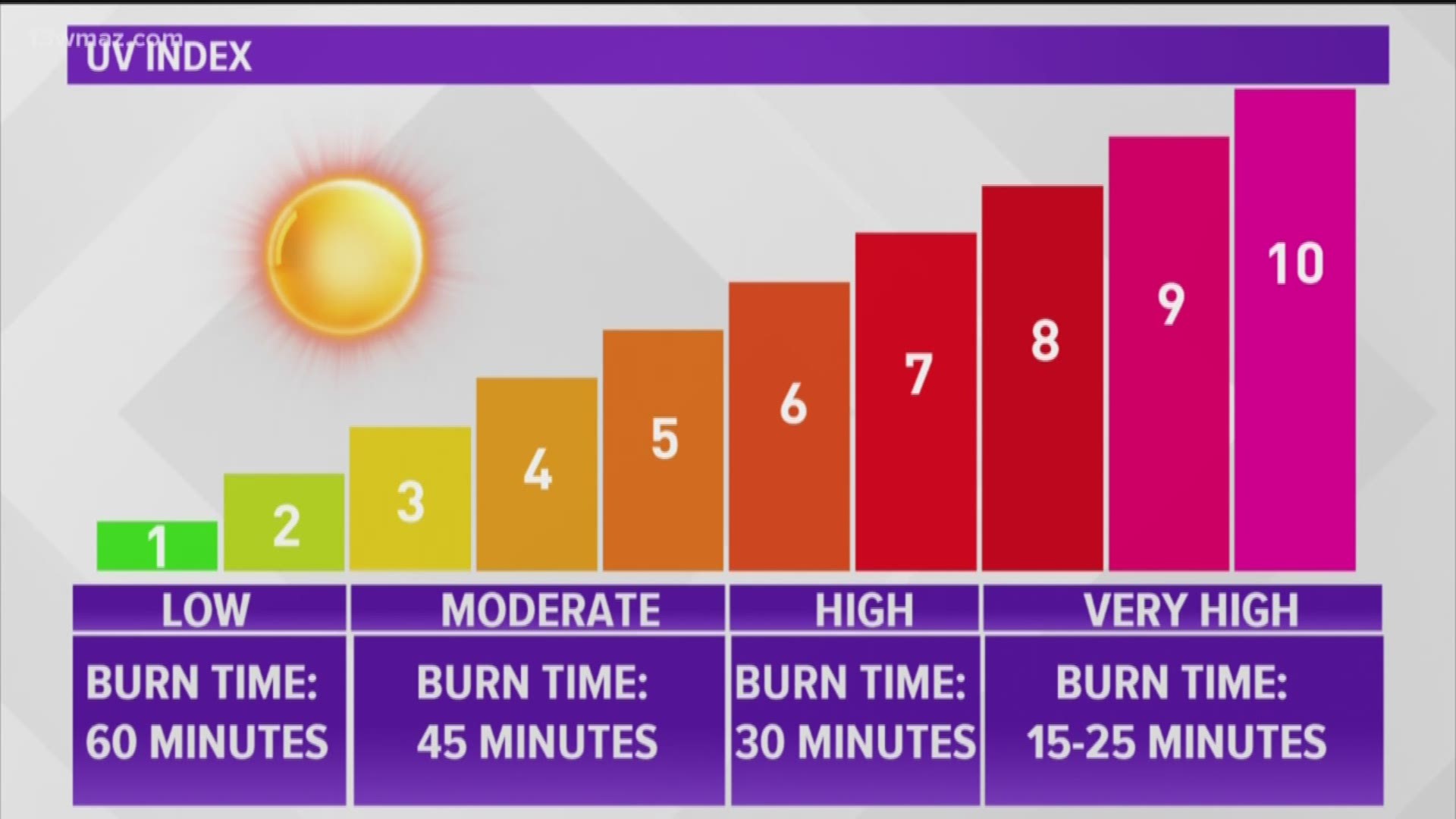MACON, Ga. — As you try to beat the heat wave coming up next week, you'll be battling more than just heat. You'll also have to combat the Sun's harmful UV rays.
The Sun is a star that emits radiation across the electromagnetic spectrum. Most of this radiation reaches Earth as visible light and that is why we are able to see, however, the Sun also emits rays we cannot see.
Ultraviolet radiation, or UV radiation, is a band that we cannot see but can certainly affect our day to day lives.
Our bodies need UV radiation in order to produce Vitamin D, but too much UV exposure can lead to skin damage.
The UV Index is a linear scale used to express the amount of UV exposure one will experience outside. It depends on the time of day, time of year, and current weather conditions.


A typical sunny, summertime day in Central Georgia will feature a UV Index value of 10 or above. This represents very high exposure to the Sun's UV rays, which could lead to sunburn in as little as 15 minutes.
If you'll be spending time outside, sunscreen is a necessity. Every sunscreen has an SPF, or Sun Protective Factor.
The higher the number, the greater the protection. A sunscreen with an SPF of 15 will block approximately 93% of the sun's UV rays. SPF 30 will block 97% of UV rays, and SPF 50 will block approximately 98% of UV rays.
Those may sound like small percentage changes, but an SPF 50 will go a lot longer way towards protecting a fair or sensitive skinned person than SPF 15.
If you're spending time outside and want to limit UV exposure, try to plan activities before 10 a.m. or after 4 p.m.. In between those times is when the Sun's rays are strongest. Also, always reapply sunscreen every two hours no matter what SPF you are using.

